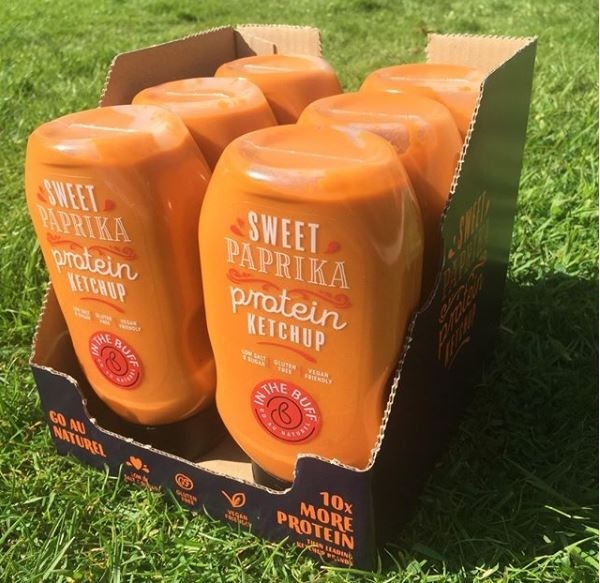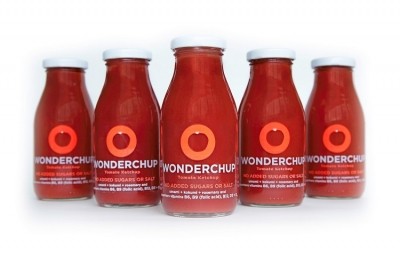Protein ketchup creators on shaking up a consolidated category: ‘Functional ingredients play a crucial part'

Despite the traditional ketchup category being heavily consolidated and dominated by only a few brands, it wasn’t that difficult for Nick Briggs and Henry Kay, the co-founders of UK start-up In The Buff, to find a unique selling point for theirs.
“Many [ketchup] brands innovate with mainly trying to reduce the salt and sugar elements of their offering. We felt that instead of 'reverse engineering' a product, we would learn the trends out there, focus on answering the needs of the consumers that weren’t being answered currently. Hence our ‘fit for purpose,’ healthy ketchup.”
The fact that consumers are increasingly interested in healthy eating has definitely worked in its favour, Briggs told us.
“This is where functional properties and ingredients also play a crucial part. Our philosophy is, this is all about ‘marginal gains’. Eating regularly and a little bit better, versus just sticking with something that you’ve been brought up with and never questioned.”
In The Buff’s gluten-free ketchup packs in 12.7 g of protein per 100 g, and the start-up will soon be launching two new flavours, Turmeric Fusion and Chipotle Spice, in addition to the original Sweet Paprika. One hundred grams contains 0.49 g salt and 10.6 g sugar.
“We’ve developed a tasty and convenient way of getting plant-based protein […] into their diets, without coming in a boring format or even as a supplement.”
“Retailers are obviously trying to find new things to offer their customers but there’s a wash of main flavours out there all fighting for the same shelf space and no doubt this comes down to price in many cases,” Briggs added.
“The ketchup and mayo ‘goliaths’ […] have had it their way for so long, that consumers need lots of education and awareness of new brands like us, to mix up the category.”
The tongue-in-cheek name – ‘in the buff’ is British slang for naked - refers to its clean label ingredient list and health halo effect. “The uniquely different source of protein […] helps you look and feel good, inside and out, or even in the buff,” the Hampshire-based start-up says.
Two years of tweaking recipes
In the Buff uses plant-based pea protein isolate to enrich the ketchup with protein. But it wasn’t an easy ingredient to work with at the start, Briggs said.
“As a natural emulsifier, it did give us one hell of a headache. We know many manufacturers have tried to use it in their products, but its characteristics make it incredibly hard to work with or get the desired percentage of protein without just turning into a paste or worse."
After two years of working with food specialists and tweaking recipes, Briggs and Kay had what they describe as “the fist pump moment” when they finally achieved the taste, texture and protein content they were looking for.
The pea protein isolate does not alter the ketchup’s flavour, Briggs said, but adds some body to the mouthfeel, which also means the condiment is “more versatile in usage” and is used by some consumers in salad dressings, dips and stir-in sauces.
A 452 ml bottle costs £4.49 (€5) on Amazon.
In The Buff uses tomatoes as a base for its ketchup but a growing number of brands are finding success with alternative vegetables.
Between April 2016 and March 2017, almost one-fifth of new ketchup launches in Germany used ‘alternative’ vegetables. Brands include Georg Thalhammer's pumpkin ketchup, Herr Edelman's smoky orange or organic mango.
In the UK, meanwhile, The Foraging Fox makes beetroot-based ketchup that uses apple to add sweetness rather than sugar.

















